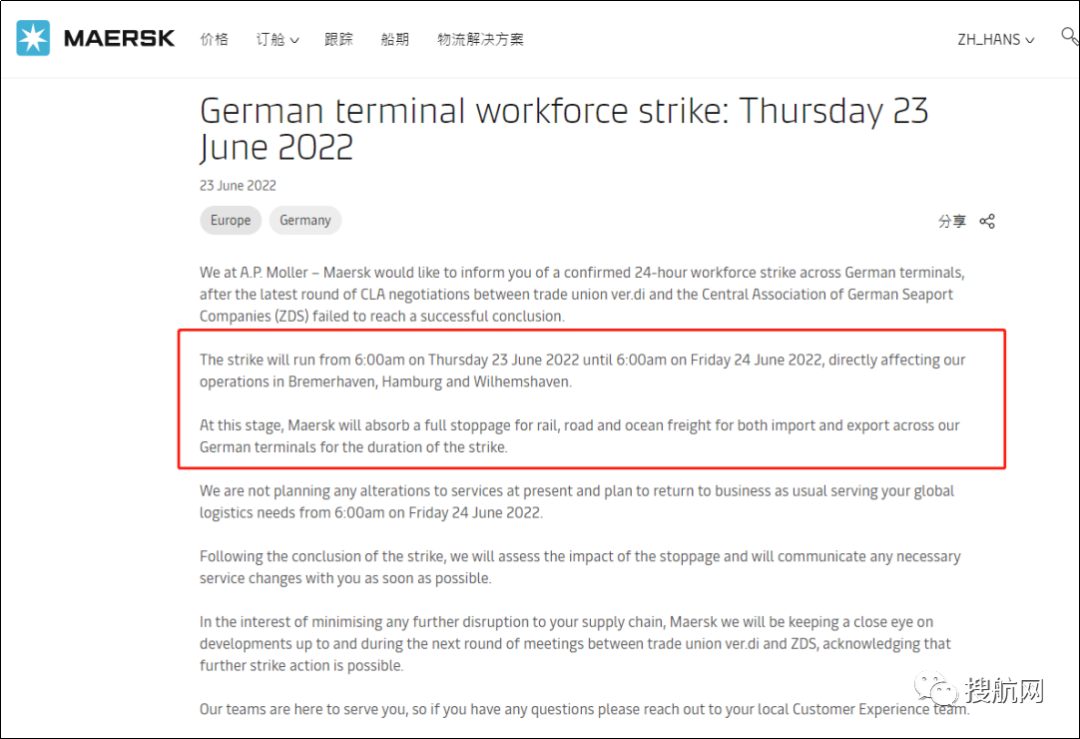The German seaport workers' union Ver.di and the seaport association have again reached an impasse over a collective bargaining agreement, and yesterday morning the Ver.di union went on a 24-hour "warning strike". This is the second time in less than a month that the union has pressured employers to meet demands for a pay rise. The strike resulted in a growing backlog of ships in the German North Sea.
The Ver.di union represents some 12,000 workers in the seaports of Emden, Bremerhaven, Brake, Wilhelmshaven and Hamburg. Operations at all ports were suspended yesterday, the report said. The union reported that 4,000 workers took part in the demonstration in Hamburg.
The shipping industry has warned that even brief strikes could have severe costs and supply chain impacts. There are already 30 ships waiting to be berthed in the North Sea, including 15 large container ships.
The Kiel Institute reports that more than 2% of the world's shipping capacity is currently trapped in the North Sea, unable to carry out loading and unloading operations. Its head Vincent Stamer said: "The situation in the North Sea has not yet led to a sharp collapse in German maritime trade, but it is certainly a burden, especially for shipping with Asia."
Regarding the strike by German dockworkers again, Maersk issued a notice stating that the strike will start at 6 am on the 23rd and continue until 6 am on the 24th, which will directly affect its operations in Bremerhaven, Hamburg and Wilhelmshaven.

Maersk said it would undertake a complete shutdown of rail, road and sea imports and exports at German ports during the strike. and stated that it does not intend to make any changes to the service.
Maersk said: "In order to minimise any further disruption to the supply chain, we will closely monitor developments before and during the next round of meetings between employers and employees. The union Ver.di acknowledges the possibility of further strike action."
Maersk has released an update on the situation at some of the Nordic major ports in light of continued congestion across the Nordics.
High congestion in the Port of Rotterdam continues to pose challenges. Terminal yard densities continue to reach critical levels, adversely affecting port and gate operations, resulting in reduced terminal productivity and potentially limiting gate opening time, thereby limiting its ability to receive more containers (both full and empty).
While waiting times and terminal productivity at the Port of Antwerp remain at reasonable levels, the yard density remains high across the Nordic network, mainly due to long dwell times and vessel delays affecting port productivity and causing berth congestion.
Previous:Matson Proceeding with LNG Retrofit for 2018-Built Containership
Next:Yixing Announces New Investments